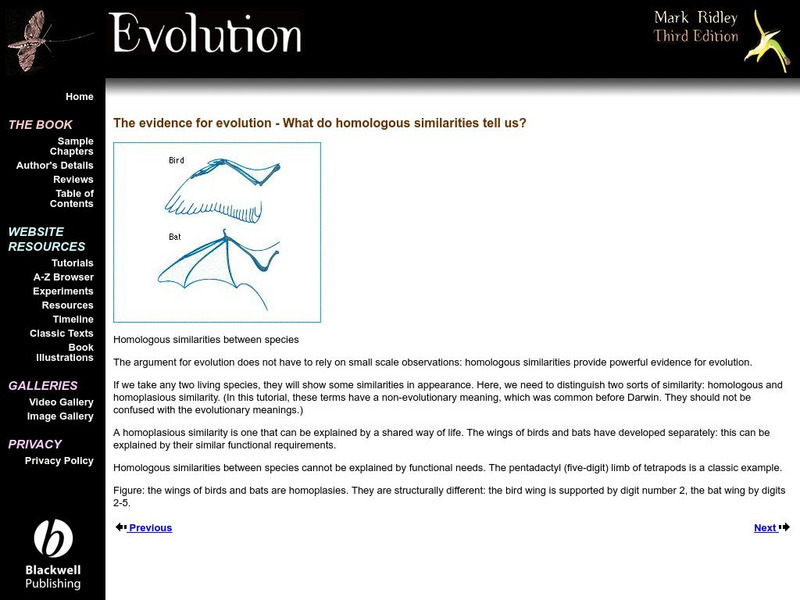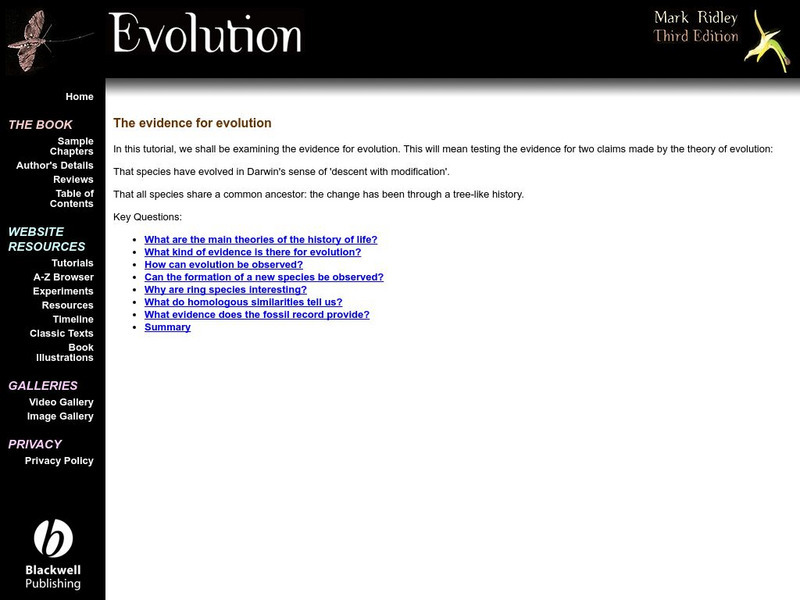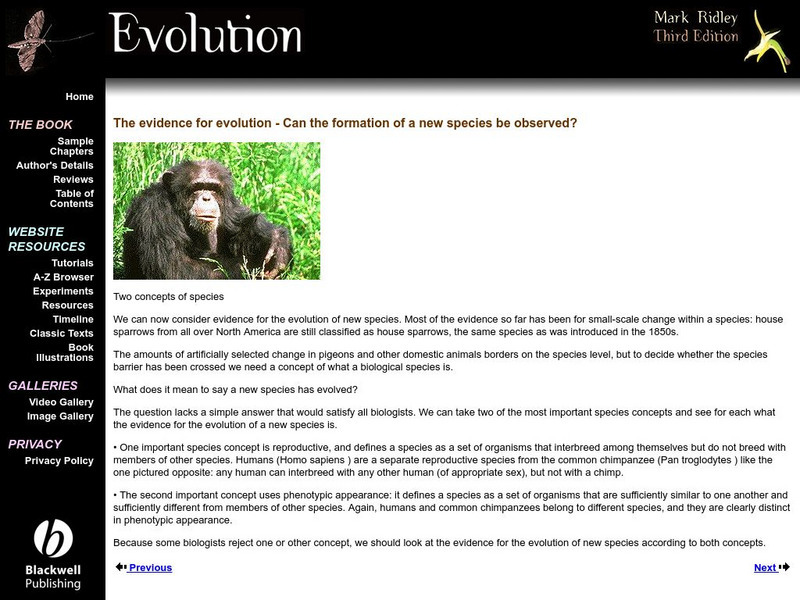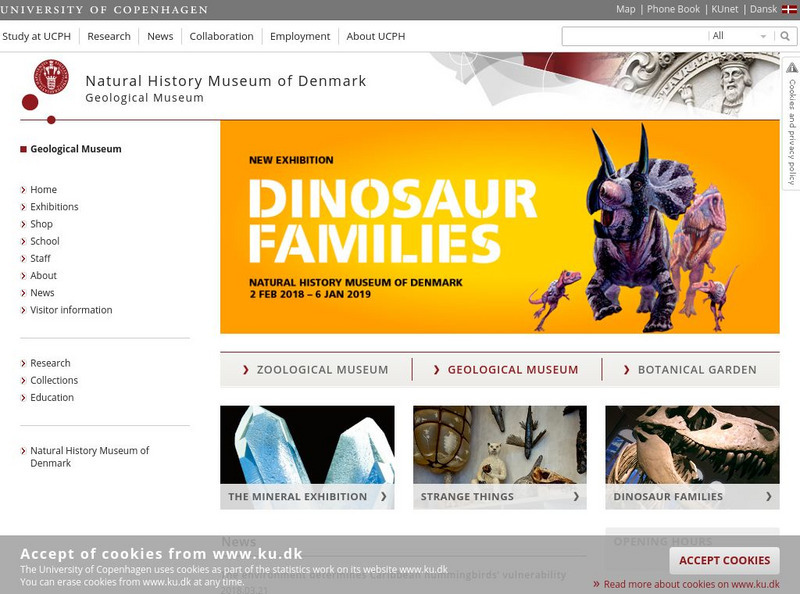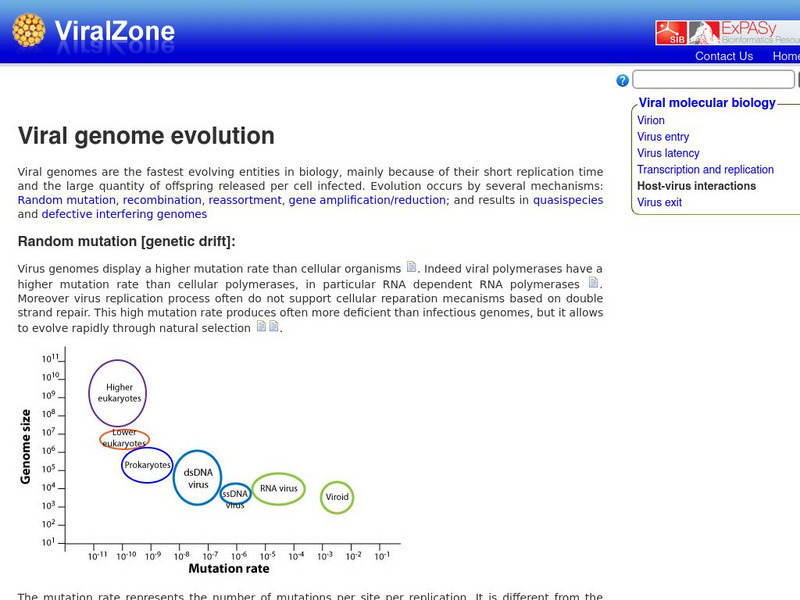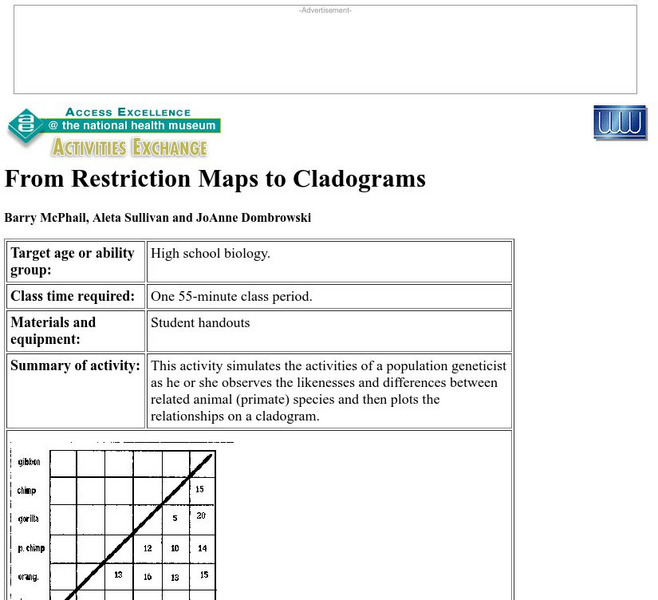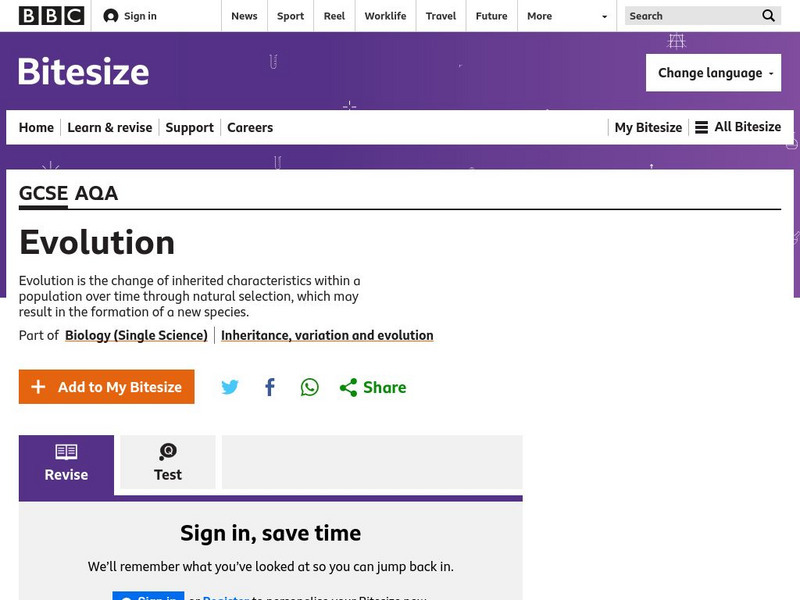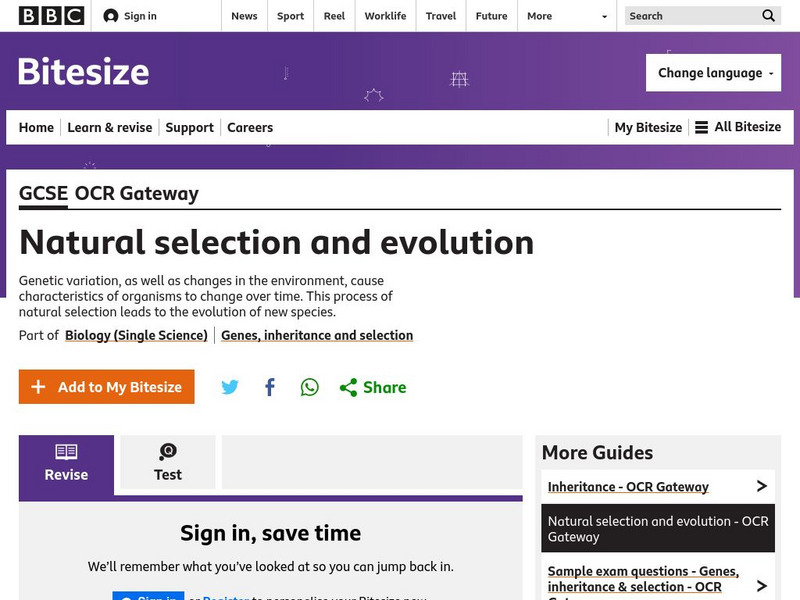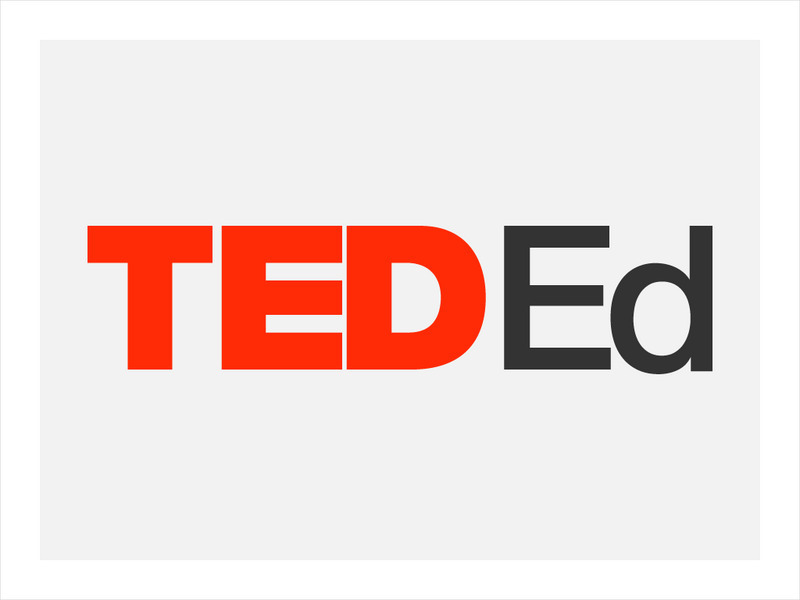New York University
Nyu: Darwin's Evidence for Evolution: Embryology
Concise description of embryology as evidence for evolution, as used by Darwin.
PBS
Pbs: Biogeography Polar Bears and Penguins
From the Evidence for Evolution Library at PBS, this is a short article about biogeography. The distribution of animals is one source of evidence for Darwin's descent with modification.
Other
The Evidence for Evolution: Homologous Similarities
This site is a section part of a website that accompanies "Evolution," a textbook by Mark Ridley. Here he covers homologous structures, using them as evidence for evolution.
Other
The Evidence for Evolution
These pages are part of a site called "Evolution," that accompanies a textbook by the same name. Mark Ridley is the author, and in this section he discusses the evidence for evolution.
Other
Evidence for Evolution: Formation of New Species
These pages are part of a site called Evolution that accompanies a textbook by the same name. Mark Ridley is the author. These pages offer an explanation of speciation using reproductive isolation and differences in phenotype.
National Health Museum
Access Excellence: Making a Phylogenetic Tree Lesson Plan
Constructing phylogenetic trees may be a daunting task for students, but this lesson plan is a simulation of what molecular biologists must do to determine relationships. This plan is for students who have a good grasp of DNA structure...
Bryn Mawr College
Bryn Mawr College: Evolution by Natural Selection
Students develop their understanding of natural selection by analyzing specific examples and carrying out a simulation.
Other
Natural History Museum of Denmark: Geological Museum
This site contains brief information about this natural history museum. Also contained are links to other museums (zoological, geological, botanical).
Other
Swedish Museum of Natural History
This resource can be viewed in Swedish or English. Some informational links are in Swedish only.
Other
Viral Zone: Viral Genome Evolution
Viral genomes are the fastest evolving entities in biology, mainly because of their short replication time and the large quantity of offspring released per cell infected. Evolution occurs by several mechanisms: Random mutation,...
BBC
Bbc: Gcse Bitesize: Evolution Aqa
Evolution is the change of inherited characteristics within a population over time through natural selection, which may result in the formation of a new species. Fossils provide a record of organisms that lived a long time ago. They also...
National Health Museum
Nhm: Restriction Maps to Cladograms Lesson
This lesson plan requires students to analyze DNA restriction maps to determine the differences in the sequence for several primates and humans. They then use the information to create a cladogram.
BBC
Bbc: Gcse Bitesize: Evolution
Evolution is the change of inherited characteristics within a population over time through natural selection, which may result in the formation of a new species.
BBC
Bbc: Gcse Bitesize: Natural Selection and Evolution
Darwin's theory of evolution explains how species of living things have changed over geological time in order to survive in the changing environment. A link to a test is provided.
Khan Academy
Khan Academy: Genetic Drift
Find out how evolution happens due to chance events. Explore the bottleneck effect and founder effect.
BioMan Biology
Bio Man Biology: Snurfle Islands
Create a Snurfle and see whether it can survive in different environments. As you play the game, you will learn about natural selection and animal adaptations. At the end of the game, try the multiple-choice quiz to check your...
BiologyWise
Biology Wise: Human Evolution: History, Timeline, Future Predictions
The history of human evolution is described, from the first aquatic animals that developed the ability to walk on land and the pivotal organisms from then up to the present day. The author then goes on to make interesting predictions...
BiologyWise
Biology Wise: Convergent Evolution vs. Divergent Evolution
Divergent and convergent evolution are explained and their differences are highlighted.
BiologyWise
Biology Wise: Genetic Drift vs. Gene Flow vs. Natural Selection
Explains what genetic drift, gene flow, and natural selection are, and compares their differences, two at a time.
BiologyWise
Biology Wise: 4 Basic Modes of Speciation Show How Species Evolve
Explains what the four main modes of species formation are - allopatric, parapatric, peripatric, and sympatric speciation - and provides examples. A fifth possible mode, stasipatric speciation, is also discussed.
TED Talks
Ted: Ted Ed: Why Are We the Only Humans Left?
Just 50,000-100,000 years ago, Earth was home to three or four separate human species, including our most famous cousins: the Neanderthals. New research has shown that Neanderthals were not the brutish, unintelligent cavemen that...
The History Cat
The History Cat: Charles Darwin & the Theory of Evolution
Outlines the events of Charles Darwin's own evolution into a scientist and how he developed his Theory of Evolution. Also discusses the immense resistance to his ideas that he faced from all fronts. Even today, many people refuse to...
The Field Museum
Field Museum: Exhibits: Evolving Planet: Cambrian and Ordovician
This comprehensive exhibit provides a basic overview of the period, an image gallery of ancient ocean life, a look at the development of skeletons, and the emergence of animals with backbones. View an interesting video on how to become a...
American Institute of Biological Sciences
Action Bioscience: Climate Change and Speciation of Mammals
An interview defining the correlation between climate change and speciation. Resources for support and for educators are offered.




